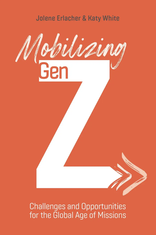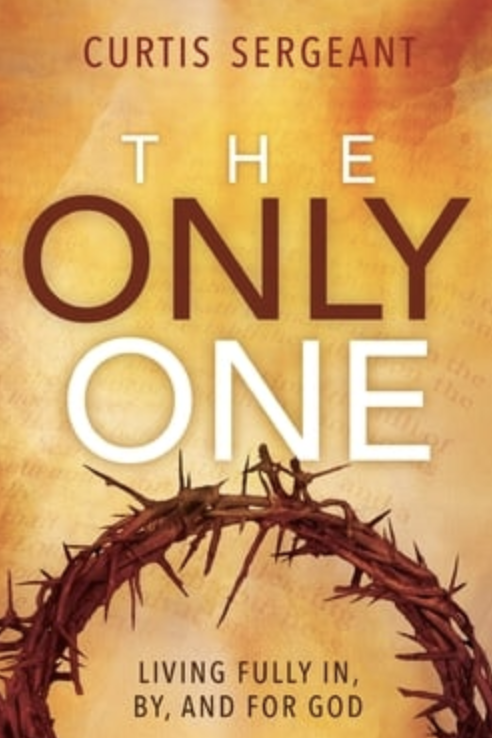|
A few weeks after our last conversation, I returned to Ahmed’s store to say hello, grab some more Kenyan tea and see what God had in store for our next interaction. Sometimes we just chit chat but increasingly, Ahmed was turning our conversations to the major stumbling blocks to faith that most Muslims face. After our customary greetings and small talk, Ahmed again looked thoughtful. “You know what, I saw a movie the other day. Some guy was giving them out at the park and I took it home. I watched most of it. It was called 'The Passion'.” I wasn’t sure what he would think of the movie so I asked, “What did you think of the movie?” He smiled, “Oh it was a really interesting movie. Jesus’ life is very compelling. He lived such a beautiful life. I really love Jesus.” He really loved Jesus? I’d not heard Ahmed talk quite so openly about Jesus before. “Wow. It’s really great to hear you say that. It sounds like you are beginning to understand why Jesus is so important to me.” I replied. Ali looked a little surprised. “Well, I’ve always known he is important. He lived a perfect life. He did miracles. And he will come back on the last day. Jesus is one of God’s greatest prophets.” He paused then and took a deep breath as if he were about to tell me some really bad news. “It’s just that the movie got a few things wrong.” I didn’t know exactly where he was going so I said, “Hmmm. Like what?” It was the best I could do at the time but it was enough to give Ahmed the floor. He would tell me what. “Well, to start with, Jesus did not die on the cross. God would never allow his prophet to be treated that way. According to the Quran, God caused someone else, most likely Judas, to look like Jesus and die instead of him. Jesus was taken up to heaven without dying. Sura 4:157 says, “That they said (in boast), "We killed Christ Jesus the son of Mary, the Messenger of Allah";- but they killed him not, nor crucified him, but so it was made to appear to them, and those who differ therein are full of doubts, with no (certain) knowledge, but only conjecture to follow, for of a surety they killed him not:” So you see my friend, Jesus did not die on the cross.” How would you respond to Ahmed? The Muslim Perspective The Quran teaches pretty clearly that Jesus did not die on the cross, but that another was crucified in his place and that Jesus was then taken directly up to heaven. Within Islam there are a number of theories about who was placed on the cross in Christs place. These include Peter, Judas, a Roman soldier, a Jewish bystander and in some minority opinions, the swoon theory is accepted. Most Muslims believe that the prophets of God in the Koran must win and be victorious. Muhammad defeated the enemies of Islam and destroyed the idols in the Ka’ba. So Jesus could not have been subjected to beating, humiliation and death. Like the post we shared last week and the week before, I’ll share a few helpful thoughts and then allow some of the experts in this to take over the heavy lifting in the articles, books and talks shared below. A Few Thoughts We don’t need to argue with our Muslim friends, but we can start by asking what I’ll call “Pebble Questions". A pebble question is a question that forces someone to consider something that will stick with them, like a pebble in their shoe. These create opportunities through which the Holy Spirit can begin to work. You’ll find this pattern familiar, but a good place to start is with three responses. The three ways to respond are once again:
Here are three simple questions that will hopefully create a pebble in their thinking about the cross. Theological Response: What glorifies God more? To help Jesus escape death or for Jesus to conquer death? Logical Response: Would you be willing to die for something that you absolutely knew was a lie? Historical Response: Have you ever read what historians in the first century wrote about the Crucifixion? Unpacking The Questions The theological response challenges our Muslim friends' belief that God is great. Saving Jesus through trickery doesn’t give glory to God or show his power nearly as much as stepping into the teeth of death and defeating it. The logical response forces our Muslim friends to see the Biblical story in light of human nature. Human nature is bent toward self-preservation. It is one thing to die for something you absolutely believe in. ISIS and Al Qaeda suicide bombers do that. But if the Quranic story is true, then the disciples and hundreds of others who claimed that Jesus was raised from the dead would have all known with absolute certainty that the resurrection was a lie. Human nature is bent toward self-preservation and yet they all willingly died violent deaths to perpetuate that lie. Maybe one person would do this. There is no logical way that the story of the resurrection would have been sustained in the heat of such intense persecution and murder if the early followers of Jesus all knew it to be a lie. The historical response allows us the opportunity to invite our Muslim friends to simple explore what the historical record says. Non-Christian sources like Tacitus and Josephus speak of the crucifixion. The historical record of the Crucifixion is so strong that even Reza Aslan, an Iranian Muslim and author of the book Zealot, agrees that one thing we can know for sure about Jesus is that he was killed by the Romans. We'll end this article with the same few paragraphs that we ended with last week. The first and last thing we should do as we discuss the Crucifixion and resurrection with our Muslim friends is to pray and fast. Intellectual assent is rarely enough for a journey to faith. "No one comes to Jesus but that the Father who sent him draws them (John 6:44)." Salvation is always a work of the Holy Spirit. Remember, "The god of this age has blinded the minds of unbelievers, so that they cannot see the light of the gospel that displays the glory of Christ, who is the image of God (2 Corinthians 4:4)." We must pray that the blinders be removed! As a final word, "honor Christ the Lord in your hearts as holy, always being prepared to make a defense to anyone who asks you for a reason for the hope that is in you; yet do it with gentleness and respect (1 Peter 3:15). Walk in wisdom toward outsiders, making the best use of the time. Let your speech always be gracious, seasoned with salt, so that you may know how you ought to answer each person (Colossians 4:5-6). Each person. Our Muslim friends are people. They are not arguments to be defeated. They are people to be loved and the Father is drawing them to himself. The following articles, videos and books are resources I've found helpful as I prepare to give a reason for believing in the Crucifixion, and the resurrection of Christ. Articles
Books
Videos
0 Comments
Your comment will be posted after it is approved.
Leave a Reply. |
The E2E Community
Categories
All
Good Books
Archives
April 2024
|
Proudly powered by Weebly






